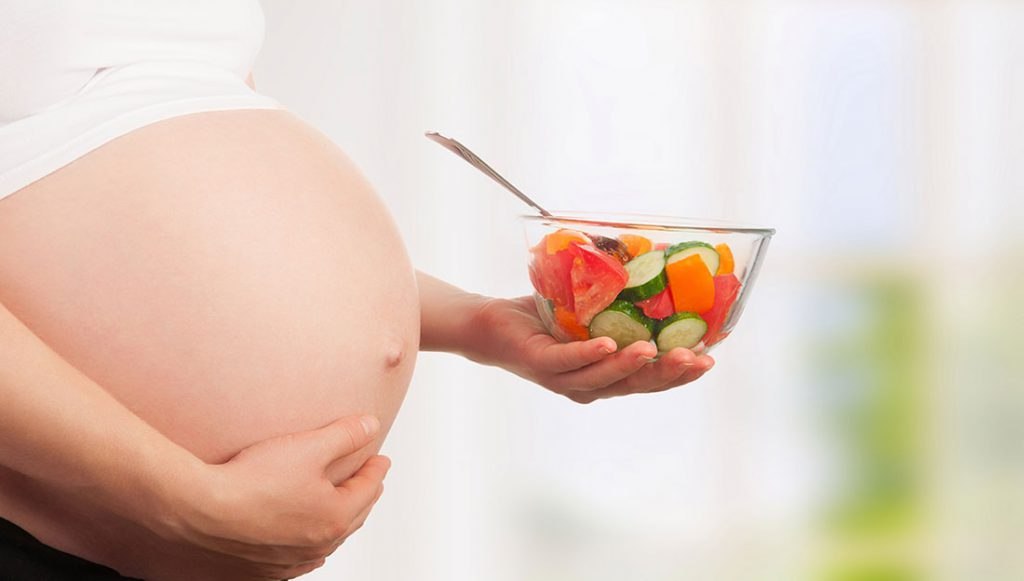SHARES

According to a study, up to 15% of couples face fertility issues. Fortunately, unlike other factors that cannot be controlled such as age and genetics, eating certain foods while avoiding some others may help increase fertility. The Fertility Diet was written more than 10 years ago by an associate professor at Harvard School of Public Health and was ranked 11th overall best diet in the U.S. It was designed to help women improve fertility and ovulation function.
If you are trying to conceive, does your diet contain foods that increase fertility? Referring to The Fertility Diet and our research, here is a list of nutrition tips to boost your chance at getting pregnant:
-
Indulge in healthy, plant-based fats in moderation
Studies have shown that good fats may assist women who struggle with infertility. Foods such as nuts, avocados, olive oil and grapeseed oil can reduce inflammation in the body, which promotes regular ovulation. Therefore, incorporating healthy fat in the diet is important for boosting fertility.
-
Avoid foods high in trans fats
Trans fats are usually found in hydrogenated vegetable oils and in some products such as margarine, fried foods, processed and baked goods. Do check food labels in rusks, crackers, pies, biscuits, wafers etc as they vary from below 1% up to 30% of total fatty acids). They increase insulin resistance which leads to an increased risk of ovulatory infertility. Hence, try avoiding foods high in trans fat to boost your chance at getting pregnant.
-
Eat foods that are rich in antioxidants
Studies have shown that antioxidants like folate and zinc may improve fertility for both men and women. Antioxidants function by deactivating free radicals in the body, which can damage both sperm and egg cells. Foods which contain beneficial antioxidants include fresh fruits, vegetables, nuts and grains.
-
Consume more complex carbohydrates and limit highly processed ones
Highly processed carbs when digested can cause blood sugar spike, which causes an increase of insulin in the bloodstream. Studies have found that high insulin levels appear to inhibit ovulation, thus making it harder to get pregnant. Limit these processed carbs or refined carbs include cakes or pastries, white bread, white rice/pasta, fruit juices and sugar-sweetened beverages.
-
Opt for iron-rich foods
An iron-rich diet may lower the risk of ovulatory infertility. Foods which are rich in iron include all types of beans, eggs, lentils spinach and whole grains. Also, adding vitamin C such as from citrus fruits or berries to the meals can help to enhance iron absorption.
-
Avoid low-fat dairy
Some research has shown that women who consumed high-fat dairy were more likely to conceive naturally than those who had skim and low-fat dairy. Also, yogurt, homemade or Greek-style is one of the top fertility foods for getting pregnant. This is because the probiotic microbes in yogurt helps to reduce inflammation thereby boosting fertility. Besides that, yogurt also boosts semen quality in their male counterparts.
-
Swap animal protein with plant-based protein
Higher intake of vegetable protein may protect against infertility. A study has shown that animal protein was linked to a 32% higher chance of developing ovulatory infertility. Thus, consider replacing certain portion of meat protein with plant-based protein such as vegetables, beans, lentils and nuts.
Some studies have suggested that caffeine may negatively affect female infertility. Caffeine can lead to dehydration, which prevents the mucous membranes from staying moist affecting the consistency of cervical fluid. Thus, women trying to get pregnant may want to limit their caffeine intake.
Conclusion
If you are trying to get pregnant, adopting the fertility diet may improve your chances. However, the dietary sources cannot address all causes of infertility including genetic problems, infections, blocked fallopian tubes or sperm issues. Thus, visit a medical professional about what other steps needed if you have been trying to get pregnant without success.
If you need to consult a Fertility Specialist: call, send an enquiry or book an appointment on GetDoc.
Find a Fertility Specialist in Malaysia, on GetDoc
Find a Fertility Specialist in Singapore, on GetDoc
by Soh May Leng
Born and raised in Malaysia, May Leng obtained her Bachelor of Dental Surgery from the University of Otago, New Zealand. She has joined the GetDoc team to relay valuable health information to the public. Staying active plays a big part in her daily life especially through outdoor sports such as running and swimming. She also enjoys travelling and has a passion for photography. View all articles by Soh May Leng.







